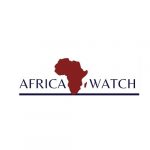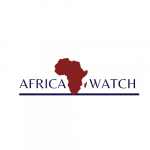As Human Rights Watch reports, Zimbabwean President Emmerson Mnangagwa has signed into law sweeping new legislation that imposes severe restrictions on the operations of nongovernmental organizations (NGOs) in Zimbabwe, sparking immediate condemnation from human rights defenders and civil society groups both at home and abroad. The law, enacted on April 11, is being described as a decisive attack on freedom of association and expression, with critics warning it will suffocate independent civic activity in an already repressive political environment.
Human Rights Watch, Amnesty International, and a chorus of local NGOs have sounded the alarm, calling the law a clear escalation in the government’s crackdown on dissent and democratic engagement.
Stricter Controls, Broader Powers
Formally known as the Private Voluntary Organizations (PVO) Amendment Act, the legislation grants the government sweeping oversight over NGO registration, funding, and activities. Among the most concerning provisions:
-
Mandatory registration and vetting through the Office of the Registrar, with discretionary power to approve or dissolve organizations.
-
Broad and ambiguous definitions of “political activity,” allowing authorities to target NGOs critical of the government or involved in rights advocacy.
-
A blanket prohibition on PVOs engaging in work that is deemed “political” or allegedly undermining national interests, terms that remain ill-defined.
The Mnangagwa administration argues the law is necessary to “protect national sovereignty” and “curb foreign influence”, claiming that some NGOs serve as conduits for external interference in Zimbabwe’s domestic affairs.
Civil Society Under Siege
The new law has sent shockwaves through Zimbabwe’s NGO community, particularly those working on human rights, election monitoring, gender equality, and democracy promotion. Groups that have long served as watchdogs fear the legislation will be used to silence criticism, curb civic activism, and choke off international support.
“This law is a sword hanging over the heads of every organization that has dared to speak truth to power,” said a spokesperson for the Zimbabwe Human Rights NGO Forum. “It’s a death sentence for independent civic space.”
Some NGOs have already halted operations, citing legal uncertainty and fear of reprisals. Others report increasing pressure from local authorities to curtail advocacy efforts, particularly those related to the 2023 general elections and their aftermath.
A Wave of Condemnation
Rights groups and foreign governments have condemned the move as part of a broader authoritarian drift. Human Rights Watch called the law “a clear effort to criminalize civic participation and undermine accountability mechanisms.” Amnesty International warned it would “severely erode democratic space in Zimbabwe and embolden the state to target dissent with impunity.”
The African Commission on Human and Peoples’ Rights has yet to issue a formal statement, but UN Special Rapporteurs on freedom of assembly and expression have previously criticized similar legal frameworks in Zimbabwe for violating core rights protected under African and international law.
A Pattern of Democratic Regression
The passage of the PVO Amendment Act is widely viewed as another chapter in Zimbabwe’s worsening democratic decline. Since Mnangagwa took power in 2017, his administration has overseen:
-
The violent dispersal of protests, including deadly force used against demonstrators.
-
Systematic intimidation of opposition figures, activists, and journalists.
-
Tight control over the media and shrinking space for political pluralism.
Analysts fear the new law may also serve as a tool to influence the lead-up to upcoming local and general elections, enabling the government to muzzle independent election observers and weaken democratic scrutiny.
Legal Violations Under African Human Rights Law
Zimbabwe’s move likely contravenes several provisions of the African Charter on Human and Peoples’ Rights, including:
-
Article 9: Right to receive information and express opinions.
-
Article 10: Right to free association.
-
Article 11: Right to peaceful assembly.
The African Commission has previously ruled against overly restrictive NGO laws in other African states, emphasizing that limitations on civic space must be necessary, proportionate, and clearly defined in law. Zimbabwe’s new act, critics argue, fails on all three fronts.
Fallout for Donor Relations and Development
Beyond human rights, the law could jeopardize international funding and partnerships. Many donor agencies have conditionality clauses tied to civic space and governance. If enforced, the new law could trigger:
-
Reduced development aid.
-
Suspended NGO partnerships.
-
Increased scrutiny from international financial institutions.
“Development partners are now forced to choose between compliance with this draconian law and standing by the communities they serve,” said a regional director for a European humanitarian organization operating in Zimbabwe.
As Zimbabwe tightens its grip on civil society, the question looming over activists and rights defenders is no longer whether the civic space is under threat—but whether it can survive at all. The PVO Amendment Act could mark a turning point, with devastating consequences for democratic participation, accountability, and access to justice.

